78 Iranian Prisoners Executed In October
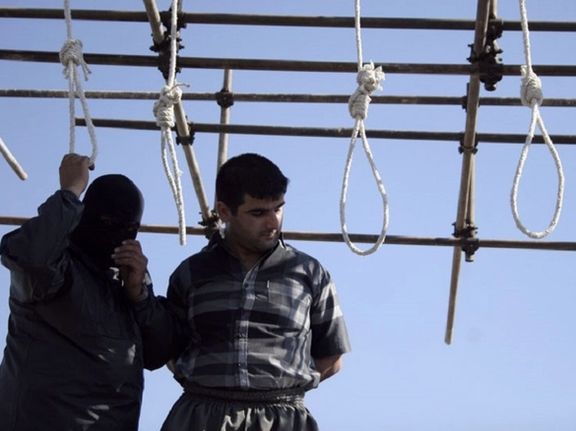
At least 78 prisoners have been executed in Iranian prisons during the past month.

At least 78 prisoners have been executed in Iranian prisons during the past month.
The alarming statistic revealed by Hengaw Human Rights reveals a shocking 65% increase compared to the previous month of September, when 27 executions were recorded.
On average, the death penalty has been administered to five prisoners every two days, further highlighting the severity of the situation.
The majority of the executions, totaling 35 cases, were related to inmates charged with drug-related offenses. This represents a significant portion of the total number of prisoners executed in October.
The statistics also reveal a disturbing pattern in the types of prisoners executed. In October, at least 18 Baluch prisoners, making up 23% of the total number of executed prisoners, had their death sentences carried out. Additionally, four Kurdish prisoners, four Turkish prisoners, and five Afghan nationals were also subjected to the death penalty.
The executions were not evenly distributed across the country. The highest number of cases, 22 in total, took place in Alborz province prisons. Ten executions were carried out in Kerman province, eight in Fars province, six in South Khorasan province, five in Esfahan (Isfahan), and four in Gilan. Other provinces reported the remaining cases.
The majority of prisoners executed in September were convicted on charges related to drug offenses, accounting for 45% of all cases, totaling 35 individuals.
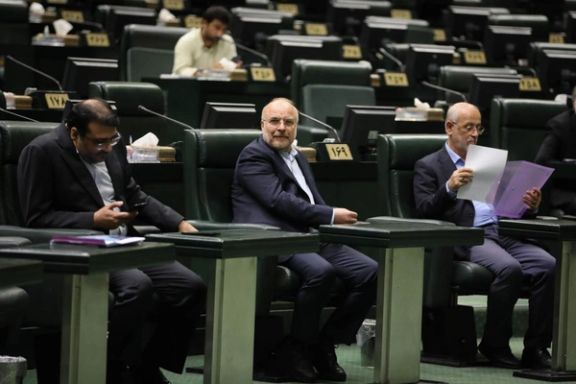
A prominent conservative commentator suggests that Iran's parliamentary speaker Mohammad Bagher Ghalibaf stands a chance to win the presidential election in 2025.
Naser Imani, stated in an interview with Tehran’s Khabar Online website that voters in Iran are likely to favor Ghalibaf to incumbent President Ebrahim Raisi. This shift comes as many traditional conservative politicians around Raisi have distanced themselves from him.
Imani pointed out that the reason for this departure of conservatives from Raisi's camp is due to his appointments of hardliners, including members of the ultraconservative Paydari Party, to key positions in his government. While many conservatives initially supported Raisi during and immediately after the 2021 presidential elections, their opinion changed after observing his government's performance over the past two years.
This dynamic casts more doubt on Raisi's political future, especially considering the revealed rivalry with Ghalibaf. Raisi appears concerned about Ghalibaf's parliament and its efforts to tarnish his image and question his efficiency as Iran's executive body chief.
Imani further noted that hardliners surrounding President Raisi continue to influence appointments within his administration. He said: "I wish Raisi was careful enough not to use radical elements at managerial levels in his government."
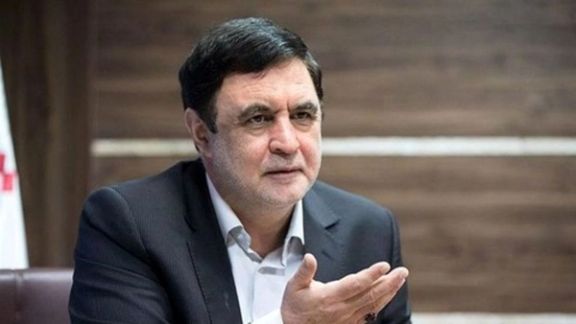
However, he appreciated the fact that although Raisi is deeply annoyed by criticism, he has rarely officially filed complaints against his critics.
Imani said: "One of the differences between Iran's reformists and conservatives is that the conservatives bravely criticize their likeminded politicians and governments." He added, "Currently conservatives criticize Raisi's economic, social and cultural policies, but most of their criticisms are directed toward the hardliners he has appointed to key posts in his government."
Speaking about Raisi's own situation in Iran's current political landscape, Imani said the biggest challenge Raisi is currently facing is about whether to take part in the Assembly of Experts election in March 2024 as a candidate from Tehran or Birjand in Khorasan Province.
Raisi's concerns stem from the need for a substantial number of votes in Tehran compared to far fewer votes required in a smaller city like Birjand. His popularity among major clerics and their followers will significantly impact his electability.
The same issue is also valid for former President Hassan Rouhani, another Assembly of Experts member, and his choice about whether to run from Tehran or Semnan. In the previous rounds, both politicians were in good standing to run from the capital but none of them can be sure about their electability after massive anti-government protests in 2022 and 2023 that revealed people's disillusionment regarding Iranian clerics.
Regarding Raisi's political future considering Ghalibaf's rising popularity, it's important to note that Supreme Leader Ali Khamenei holds the final say in most matters in Iran. If Khamenei wishes to keep Raisi in power for another term, he can exert his influence over the Guardian Council to ensure they do not endorse Ghalibaf's qualification as a presidential candidate. The Guardian Council has a history of disqualifying notable figures, and Ghalibaf may face a similar fate.
The body that has previously disqualified big shots such former pragmatist President Akbar Hashemi Rafsanjani and former populist President Mahmoud Ahmadinejad is not likely to come across any problem to kick out someone like Ghalibaf regardless of his ties with the IRGC and Khamenei's household.
On the other hand, If Ghalibaf is fortunate, Khamenei may not be so keen to keep Raisi in power, particularly because replacing him with Ghalibaf will not be seen as a defeat for Khamenei, but a change of pawns at the right time.

Jailed Iranian women's rights activist Narges Mohammadi has smuggled out a letter of thanks for her Nobel Peace Prize awarded earlier this month.
Saying it marked a turning point in "empowering protest and social movements worldwide," Mohammadi said, "I am grateful to all of you and urge you to support the people of Iran until the final victory."
"Victory is not easy, but it is certain."
In the letter smuggled out of prison and read by her daughter Kiana in a video posted on the Nobel website, Mohammadi said the news of her Nobel prize had been met with cries from her cellmates of "Woman, Life, Freedom", the slogan of the movement of which she is part. It was the first official reaction from Mohammadi to her winning the prestigious award.
The imprisoned women's rights advocate won the 2023 peace prize on October 6 in a rebuke to Tehran's theocratic leaders and boost for anti-government protesters, while also drawing the Islamic Republic's swift condemnation.
Mohammadi is serving multiple sentences in Tehran's Evin Prison amounting to about 12 years imprisonment, one of the many periods she has been detained behind bars, according to the Front Line Defenders rights organization.
Charges include spreading propaganda against the state.
Tehran, which has called the protest movement in Iran a Western-led subversion, accused the Nobel committee of meddling and politicizing the issue of human rights in the wake of the decision to award Mohammadi the peace prize.
Mohammadi said she was sending greetings and gratitude to the Nobel Committee on behalf of what she said were 46 women prisoners of conscience and political prisoners held at Evin.
Arrested more than a dozen times in her life, and held three times in Evin since 2012, Mohammadi has been unable to see her husband for 15 years and her children for seven.
"The strength of this movement lies in the agency of Iranian women. We assuredly know what we want far better than what we do not want," she said in the letter, the text of which was also published on the Nobel website.
"We believe in it, commit to it, and are certain of victory!"
(Report by Reuters)
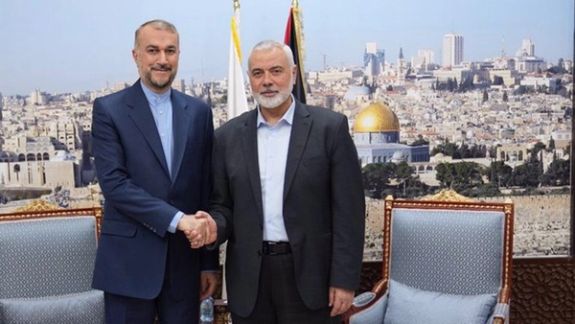
The Foreign Minister of Iran has held a meeting with Ismail Haniyeh, the head of the political office of Hamas Islamist militia group, in the Qatari capital Doha.
The meeting followed separate talks that Hossein Amir-Abdollahian had with the Emir and the Prime Minister of Qatar on Tuesday. It was the second official meeting between Iran and Hamas since the group, designated as a terrorist group by the US and several other countries, declared war against Israel.
Hamas launched the assault on October 7 with a barrage of at least 3,000 rockets launched at Israel and vehicle-transported incursions into its territory. Palestinian militants breached the Gaza–Israel barrier, targeting both military and civilian populations in neighboring Israeli communities. This included attacks on military bases, nearby towns, and even a music festival near Re'im. Over 350 Israeli soldiers and police officers, as well as more than 1,000 Israeli civilians, lost their lives during the wave of violence, with around 200 civilians and soldiers being taken as hostages to the Gaza Strip, among them, approximately 30 children. Israel has been pounding Gaza in retaliatory fire that has killed thousands of Palestinians.
Iran has expressed its full support for Hamas throughout the conflict and has issued warnings to the United States. Iran's leadership has stated that if the Israeli offensive against Hamas does not cease, it could escalate, potentially impacting American interests in the region.
Amir-Abdollahian, in a speech at the United Nations on Thursday, said that US forces in the Middle East would not be immune to the repercussions if the Israeli offensive against Hamas continues.
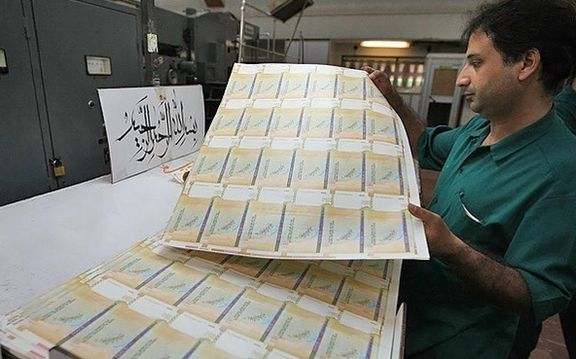
Iran’s former chief banker says the government has printed about $5.6 billion worth of national currency in the past year, aggravating the country’s inflation rate.
Abdolnaser Hemmati, the former governor of the Central Bank of Iran (CBI), said Monday that the annual growth of the country’s monetary base was about 41 percent in August, which means that the administration of President Ebrahim Raisi has printed about $460 million per month. Iran’s monetary base growth rate was 11 percent in 2011 and it rose to about 30 percent in the following 10 years. Since Raisi took office in 2021, the figure rose about 10 percent to nearly 42.
The monetary base in a country is the total amount of money created by the central bank, including the total currency circulating in the public, and the currency physically held in the vaults of commercial banks, plus the commercial banks' reserves held in the central bank. Inflation rises when the money supply of a country grows more rapidly than the economic output of a country.
Hemmati criticized the administration for its long promised but unrealistic claim of curbing Iran’s soaring inflation rate, asking, “How is it possible to control inflation with this volume of money printing?”
"Governments in Iran have become accustomed to spending more than they earn, which means they manage the country's finances by creating liquidity. In fact, the discrepancies in (the budgets of) the government, banks, and pension funds are all the result of overspending compared to income," he noted.
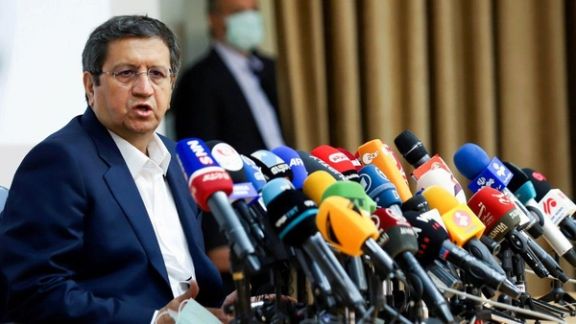
Hemmati described inflation as "the worst and most destructive form of taxation that halts savings and disrupts investment,” saying, “Although one of the reasons, and not the only reason, for inflation is negative shocks in the foreign currency market, trying to stabilize rial’s exchange rate without turning off the inflation engine results in more corruption, more capital flight, and further shocks in the currency market.”
Kamran Nadri, an economic expert and a university professor, said in an interview with KhabarOnline that the growth in the monetary base will lead to an even higher inflation rate. “Concerns regarding the inflationary effects of increasing the monetary base... are valid, and policymakers should take this matter seriously.”
Nadri added that the Central Bank tries to control the foreign currency market with government-mandated exchange rates, but this method has grave consequences. “For example, due to the volatile economic conditions and the possibility of the return of US maximum pressure sanctions, there is a risk that a shock in the currency market is triggered by even the slightest fluctuation, resulting in an increasing inflation.”
The warnings of accelerating inflation came as the Statistics Center of Iran (SCI) put the household inflation rate at 45.5 percent. According to SCI’s latest report released Monday, inflation was over 50 percent in about 10 provinces of the country, about one-third of the total.
The officials in the Raisi administration defend their economic policies and try to deflect the blame for the high inflation and devaluation of rial to the previous administration. Government spokesperson Ali Bahadori Jahromi said Tuesday that “no one can forget the 60% inflation and other negative economic indices of the administration of Hassan Rouhani.”
In 1978 before the revolution, one US dollar bought 70 rials, compared with around 40,000 in early 2018, and 500,000 now. The United States withdrew from the JCPOA nuclear deal in May 2018 and imposed both oil export and international banking restrictions on Iran, the so-called maximum pressure campaign. That quickly translated into higher inflation and a hasty retreat of the rial. The process has only picked up speed in the past year, as the rial fell from 260,000 to 500,000 per dollar.
Lawmaker Masoud Pezeshkian said Tuesday that problems that endanger the livelihood of people have worsened under the administration of Raisi, who have failed to keep up with his campaign promises. "Mr. Raisi promised to halve the inflation at the beginning of his term, but not only did inflation not decrease by half, but it rose significantly. Purchasing power has significantly declined, and ordinary employees can no longer afford their daily needs," he said.
Supreme Leader Ali Khamenei's Chief of Staff Mohammad Mohammadi Golpayegani confirmed the alarming number of people living in poverty in the country, claiming that people’s livelihood is one of the most pressing issues for Khamenei.
The SCI and the CBI claim that the rate of annual inflation has dropped to 45.5 percent, nearly the same level as a year ago, and the economic growth rate rose to above six percent between April and July. But official figures tend to underreport bad news and cannot be independently verified. One thing which is clear is that food prices have risen much faster than the official inflation rate, in some instances hitting 100-percent in 2022.
Many reports by local media say prices for some food items have also doubled in 2023, since last year. For instance, based on the figures released by the SCI, the price of mutton and beef have risen by 151 and 132 percent respectively this year.
Despite the government’s claims of economic success, a central bank report in September showed that the money supply increased by 45% this year, heralding higher inflation. In his speeches, Raisi boasts about controlling inflation and reducing money printing, and promises that the 50-percent inflation rate will drop to 30 percent by March 2024.
However, the report by the Central Bank of Iran (CBI) indicated that in April 2023 the money supply showed a 45-percent growth over the same time last year. Money in circulation reached a staggering 88,700,000 trillion rials or around $177.4 billion calculated based on the exchange rate of 500,000 rials per dollar. This is the highest level of money in circulation in Iran’s history, fueled by the government’s borrowing from the CBI that inevitably leads to printing money without any foreign currency or gold backing.
The Islamic Republic has always been printing excess money in its 44-year history, but at different tempos. When oil export revenues were high enough to support government expenditures, less money was printed. However, when oil prices declined or Iran was subjected to oil export sanctions, printing increased and rial’s value suffered.
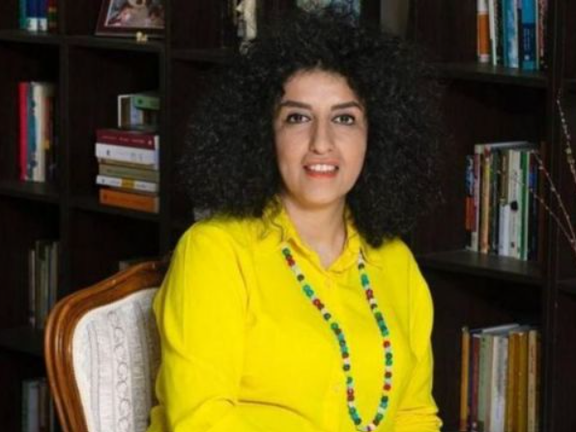
Narges Mohammadi, an Iranian human rights activist and the Nobel Peace Prize laureate for 2023, has been refused hospital treatment for refusing to wear a hijab.
Alieh Motallebzadeh, a civil activist and women's rights advocate, said Mohammadi was refused treatment for a second time on Monday on grounds that she is not following mandatory state laws over wearing the hijab.
Motallebzadeh said: "Unfortunately, Narges Mohammadi's health is not good; her heart veins are blocked, and she needs angioplasty. However, authorities have refused to transfer her to a medical facility because Narges steadfastly refuses to wear the headscarf."
Mohammadi, a vocal advocate for women's rights and a key figure in the Women, Life, Freedom protests, has consistently expressed her opposition to compulsory hijab in Iran.
In recent months, Mohammadi, 51, has written multiple letters from Evin Prison, where she has been confined since November 2021, serving a twelve-year sentence on charges that include "propaganda against the Islamic Republic." She has consistently refuted the allegations which were levied against her following her public stance against the death penalty.
Mohammadi, who serves as the co-founder and chairperson of the Defenders of Human Rights Center, has experienced detention and imprisonment on several occasions throughout the last twenty years.